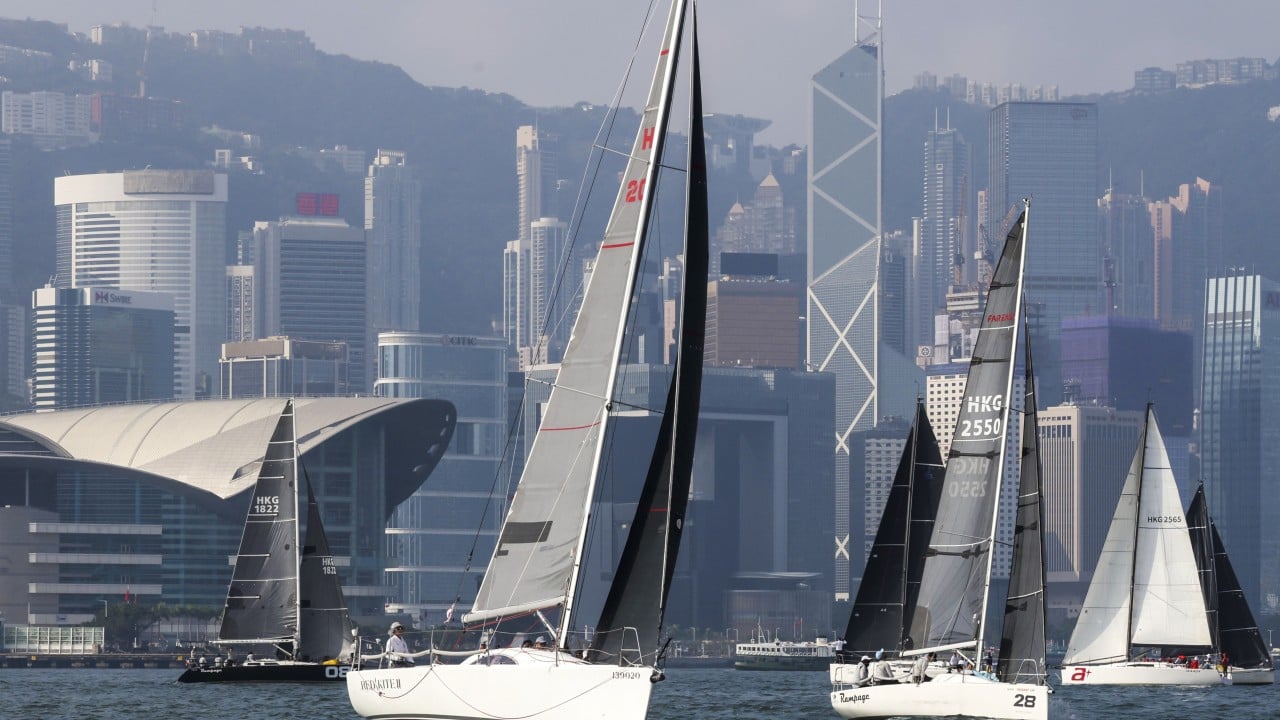Hong Kong, surrounded as it as by the sea, has a 1,000km coastline and 1,651 sq km of marine water with 263 islands within its boundaries, providing unrivalled natural conditions for water sports in the region. However, the captivating beauty of the city’s waterscape and opportunities in the ocean economy have largely been under-discovered and underestimated.
Half of the world’s population can reach Hong Kong by flight in less than five hours. This strategic location makes the city an ideal hub for sporting events and competitions.
With subtropical climate and warm seawater year-round, it is natural that water sports have long been part of people’s lives in Hong Kong. Among them, sailing has the greatest potential to become the main driver of the ocean economy and a significant creator of employment, as well as enhance the city’s image internationally.
Promoting Hong Kong as a regional centre for sailing can greatly complement the government’s positioning of the city as “a leading hub for family offices”. Sailing is a popular sport among ultra-high-net-worth families. Hong Kong as a sailing centre could offer these families private time to bond and a range of dining, lodging and entertainment options that could make for enjoyable “bleisure” stays.
The finance, import/export trade and real estate industries account for over 50 per cent of the city’s gross domestic product, and are also major providers of high-paying jobs. It is hard for young people to find a job with steady income, flexible hours and a predictable career path in other industries.
Sailing can help fill this void if the industry develops further in Hong Kong. Sailing boat builders, agents and sailing clubs would add headcount in areas such as boat design, trade, marine services, financing, insurance, crew management, race management, training, legal services, food and beverage and event organising.

Sailors can also add to the economies of remote islands, reviving the fishing villages there. The economic benefit to a city could be significant. For example, this year’s America’s Cup is estimated to create a positive economic impact of US$2.1 billion and 19,000 full-time equivalent jobs for Barcelona.
Hong Kong has over 170 years of history in hosting regattas and is home to eight yacht clubs. These clubs already host regattas regularly. One successful example is the weeklong Hong Kong Race Week that took place in February which attracted over 270 sailors from 10 countries. These events deserve more media coverage, sponsorship and government support so they can be staged more frequently and on a larger scale.
In the rest of the Greater Bay Area, enthusiasm for sailing is increasing, evidenced by the increasing numbers of sailing training camps and yacht clubs. There are now over 10 yacht clubs, where some of China’s finest sailing boats are moored, in the Pearl River Delta area, including in Macau, Zhuhai, Shenzhen and Nansha.
A few years ago, the central government approved an “individual travel scheme” for yachts in Hong Kong, Macau and Guangdong province. However, as the leader in water sports, Hong Kong has yet to fully utilise this policy for job creation and economic growth.

Every year, repair and maintenance for a sailing boat costs 10-20 per cent of its original price. With more sailing boats moored in Hong Kong, this can become a significant steady income stream for the local economy. Hong Kong should capitalise on its status as a free port to keep more sailing boat and repair part transactions local so that skilled workers in shipyards and marinas remain employed.
Three Hong Kong sailors are competing in the Paris Olympic Games, showing that the training programmes in the city are world-class. Hong Kong should fortify its status as the regional training hub by organising holiday camps and regattas to increase the city’s soft power and competitiveness in the sailing world. Regatta participants tend to stay for several days at the race location, increasing the amount they spend locally.
Unlike mass market tourism, sailing has fewer negative impacts on local residents. During business hours, sailors spend most of their time at sea, and would create little burden on Hong Kong’s already busy roads and business district. In terms of sustainable tourism, sailing is also a greener choice when it comes to sea travel as it consumes less diesel and thus emits less pollution.
Elegant, competitive, athletic and intelligent – that’s the image Hong Kong needs to cultivate for its high-end branding internationally.
Andy Cheng Yin-kwan is a member of the Tuen Mun district council and vice-chairman of the Youth Affairs Committee in the Construction Industry Council


